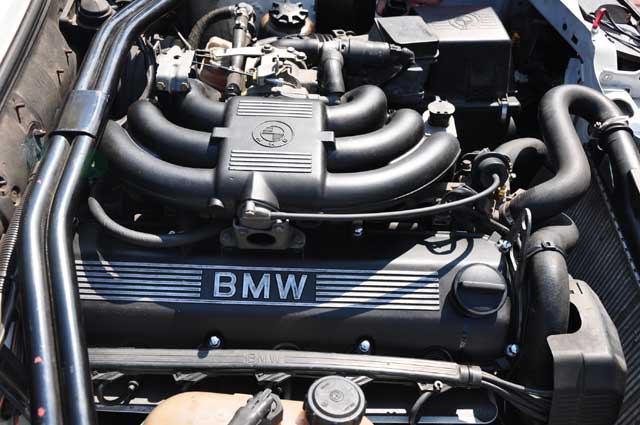Revealing the Intricacies of Next-Generation Power Units: a Deep Study Advanced Engine Layouts and Advancements
In the realm of automobile engineering, the unrelenting pursuit of sustainability, efficiency, and efficiency has actually thrust the advancement of power systems to unprecedented heights. As we stand on the precipice of a new period in transportation, the complexities of next-generation engine layouts beckon us to discover the innovative innovations and technologies that guarantee to redefine the driving experience. From advanced products that press the limits of sturdiness and weight decrease to sophisticated turbocharging and turbo charging systems that boost power output to brand-new levels, each element of these power systems holds a crucial to unlocking the future of automotive engineering. Diving deeper right into the worlds of exhaust control, intelligent engine monitoring systems, and the perspective of power system development, we discover ourselves on the cusp of a makeover that guarantees to reshape the landscape of flexibility as we understand it.
Evolution of Engine Materials

The change in the direction of progressed engine products has actually additionally enabled designers to design engines with higher power results while maintaining gas efficiency standards. The use of lightweight materials minimizes the general weight of the engine, leading to boosted gas economic situation and lower exhausts. In addition, improvements in products innovation have enabled for better thermal management within engines, causing increased reliability and longevity.
Turbocharging and Supercharging Technologies
Exactly How do Turbocharging and Supercharging Technologies revolutionize engine performance and performance in modern-day vehicles? Supercharging and turbocharging are innovations that substantially enhance engine efficiency by boosting the amount of air consumption into the burning chamber. Turbocharging accomplishes this by using a generator driven by exhaust gases to pressurize the consumption air, while turbo charging uses a belt- or chain-driven compressor to attain the same effect.
These modern technologies enable smaller, much more fuel-efficient engines to create power equal to larger ones, called downsizing. Forcibly more air into the cyndrical tubes, turbocharging and supercharging enhance combustion performance, leading to boosted horse power and torque output without a considerable increase in engine size. This results in far better acceleration, pulling ability, and overall driving efficiency.
In addition, turbocharging and turbo charging contribute to enhanced gas efficiency by allowing the usage of smaller engines that consume much less fuel under normal driving conditions - bmw engine. This combination of boosted performance and performance has made turbocharging and supercharging indispensable elements of many contemporary engine styles
Exhaust Control and Environmental Impact
With enhancing international issues pertaining to air top quality and environmental sustainability, the application of exhaust control modern technologies in vehicles plays an important function in lowering hazardous contaminants released into the environment. Modern cars are furnished with advanced discharge control systems that assist decrease the environmental impact of vehicle procedures. Catalytic converters, for example, are designed to transform poisonous gases such as carbon monoxide gas, nitrogen oxides, and hydrocarbons right into much less damaging compounds like carbon dioxide and water vapor.
Moreover, advancements in engine innovation, such as the assimilation of exhaust gas recirculation systems and selective catalytic reduction, have substantially contributed visit this site to reducing emissions. These modern technologies work in tandem to enhance combustion effectiveness and decrease the release of harmful contaminants into the air. Furthermore, the growth of hybrid and electric vehicles represents an essential step towards lowering the general environmental impact of the transportation market.
Intelligent Engine Management Equipment

Furthermore, these systems allow lorries to satisfy strict discharges criteria without compromising efficiency, offering a more ecologically pleasant driving experience. The combination of artificial knowledge and machine discovering capabilities in engine administration systems remains to push the borders of what is possible, resulting in additional renovations in efficiency, integrity, and overall automobile efficiency. bmw engine. As vehicle technology breakthroughs, intelligent engine administration systems will certainly play a vital duty in shaping the future of transport towards a much more lasting and efficient direction
Future Trends in Power Device Growth
As intelligent engine administration systems pave the method for enhanced control and optimization in modern cars, future trends in power unit advancement are poised view to redefine the landscape of automotive propulsion technologies. These alternative power resources supply boosted performance and efficiency while lining up with rigid environmental regulations.
Another considerable pattern is the integration of advanced products and producing methods. Lightweight products such as carbon fiber and light weight aluminum are being made use of to decrease overall lorry weight, boosting fuel effectiveness and performance. Additionally, advancements in 3D printing and additive production are making it possible for the production of complex engine elements with higher accuracy and longevity.
Moreover, man-made intelligence and equipment learning are playing an important duty in maximizing power system efficiency. These innovations permit real-time tracking and adaptive control, causing more reliable and reputable power shipment. Overall, future patterns in power unit advancement are tailored towards performance, sustainability, and performance, driving the auto industry in the direction of a brand-new age of propulsion technologies.

Final Thought
In verdict, the developments in engine products, turbocharging, discharge control, and smart management systems have led the means for next-generation power units. The elaborate layouts and innovations in modern engines display the recurring evolution of automotive innovation.
Discovering the progressive developments in engine materials has been critical in improving the efficiency and performance of contemporary engines. Over the years, the evolution of engine materials has actually played an important role in pushing the boundaries of what engines can achieve.The shift towards advanced engine materials has additionally enabled engineers to develop engines with higher power outputs while maintaining fuel performance standards.The application of intelligent engine management systems in modern vehicles has actually changed the means engines are controlled and maximized for efficiency and performance. By gathering data in real-time and evaluating it with sophisticated algorithms, intelligent engine monitoring systems can site here adjust to driving styles, environmental factors, and engine wellness to optimize power output while reducing fuel intake and discharges.
Comments on “Discovering the Performance Enhancements of the current BMW Engine Versions”